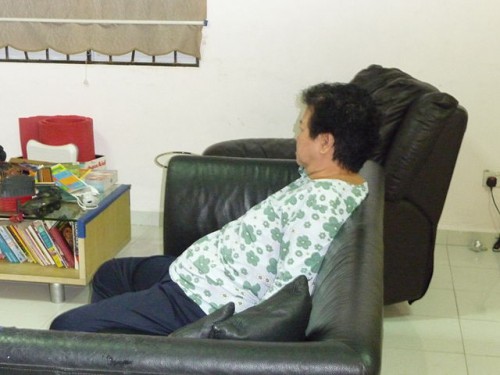SCOTTISH inventors helped to create the couch potato, one of the biggest public health problems of the 21st Century, a government fitness tsar has said.
Andrew Murray, the Scottish Government’s fitness champion, said appliances like the television, fridge and telephone sowed the seeds
for a huge problem of physical inactivity.
Despite Scottish inventors creating medical marvels such as penicillin, insulin and the electrocardiogram, he said Scots also came up with the “best friends of the couch potato.”

Murray, a GP and former long-distance runner, is devising a national strategy to encourage exercise.
Writing in the British Journal of Sports Medicine, Murray said: “Scots take pride in their proud history of innovation and invention.
“To medicine, we have contributed penicillin, insulin and the electrocardiogram.
“Scots also contributed the three best friends of the couch potato; the telephone , the refrigerator and the television, unwittingly
sowing the seeds for one of the biggest public health challenges of the 21 century: physical inactivity.”
He said poor fitness killed more people than obesity, diabetes and smoking combined.
Social media
In Scotland, about 2,500 people die prematurely every year through lack of exercise, costing the NHS around £91million.
Murray’s strategy to encourage more physical activity is set to include social media like Facebook.
It is recommended adults walk at least half an hour per day, and children stay active for an hour every day.
But a survey in 2010 found only 39% of adults and 72% of children exercised regularly.
The Scottish Government wants to increase the figure to 50% for adults and 80% of children.
Shift
In a recent Scottish Parliament debate, sport minister Shona Robinson said: “Obesity levels are the third worst among OECD countries, behind the US and Mexico, so we need a transformation to shift out culture to make physical activity a routine, normal part of everyday lives.
“We know that 30 minutes of walking each day provides more protection against death than any medication.
“While there are small increases in the number of adults and children being active, we want the majority of Scots to be in a normal weight range by 2030.”

